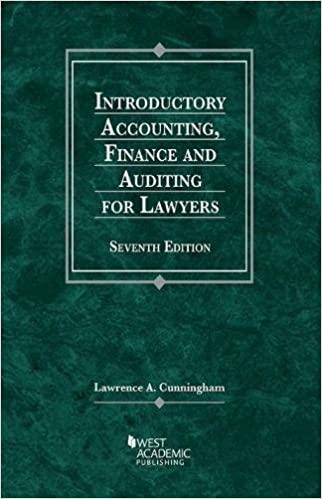Answered step by step
Verified Expert Solution
Question
1 Approved Answer
Answer these 4 questions in detail based on the Tracking Manufacturing Costs on a Continuous Flow of Identical Products case study and spreadsheet that I
Answer these 4 questions in detail based on the Tracking Manufacturing Costs on a Continuous Flow of Identical Products case study and spreadsheet that I have provided below, please look at it before responding. PLEASE PROVE THE ANSWERS FULLY AND ONLY ANSWER IF YOU ARE CONFIDENT THAT THEY ARE ALL CORRECT(:
Questions:
- On a FIFO basis, what are the percent changes in the cost per completed unit from one group to the next over the three-month period? What may have caused these differences?
- If the estimate for projected production in August is adjusted down by 20% due to inclement weather, yet total labor and factory overhead costs remain at the original amounts, what is the impact on cost per equivalent unit?
- At the selling price of US$97.00 per unit, what is the gross profit for July if the packaging department adds US$0.04 to each unit and if units sold are 30,000 in June and 35,000 in July? Explain.
- Was accepting the licensing requirement as part of the Spark Bank financing deal a good idea? What are the positive and negative aspects of doing so?
Case Study:
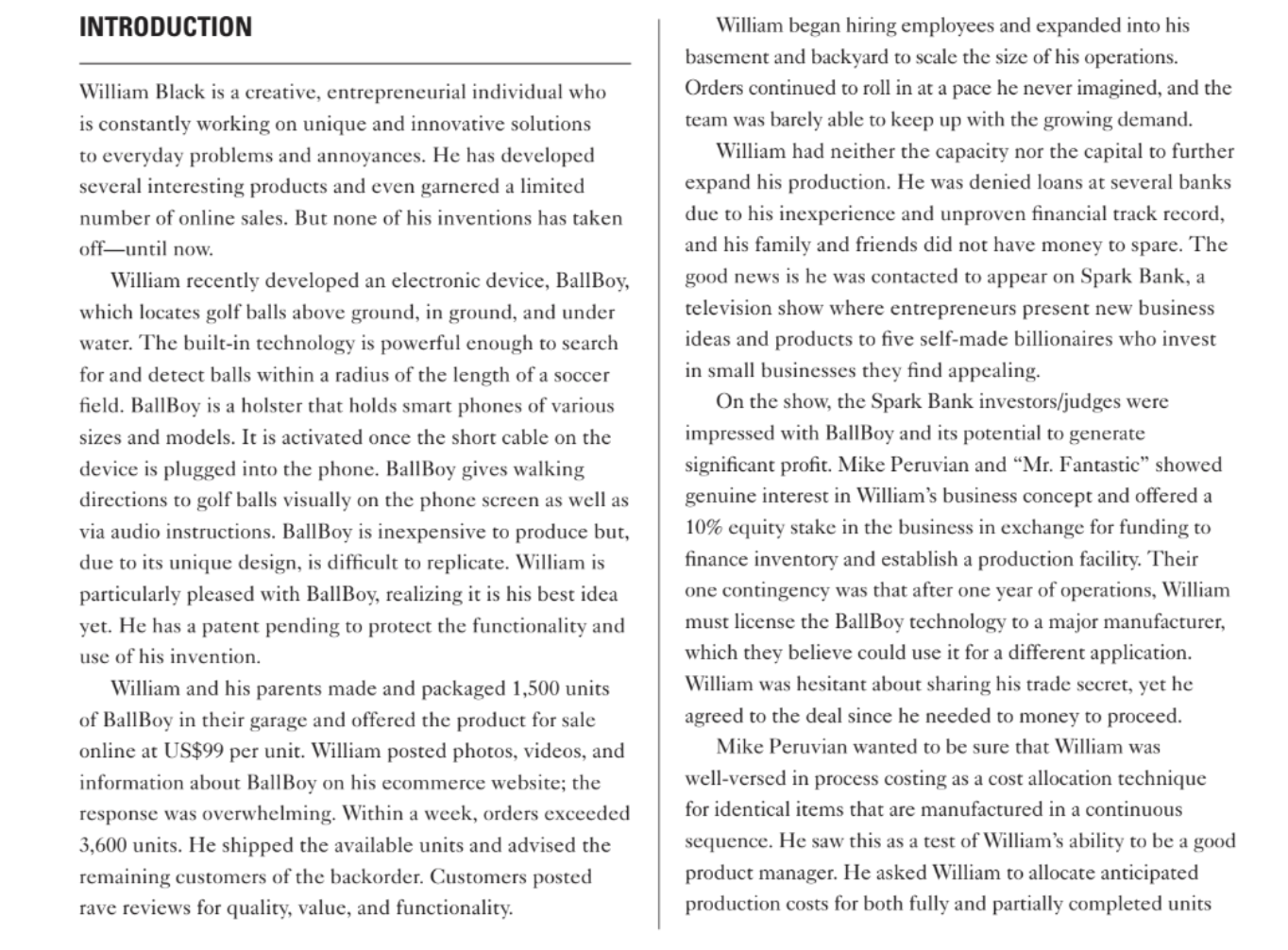
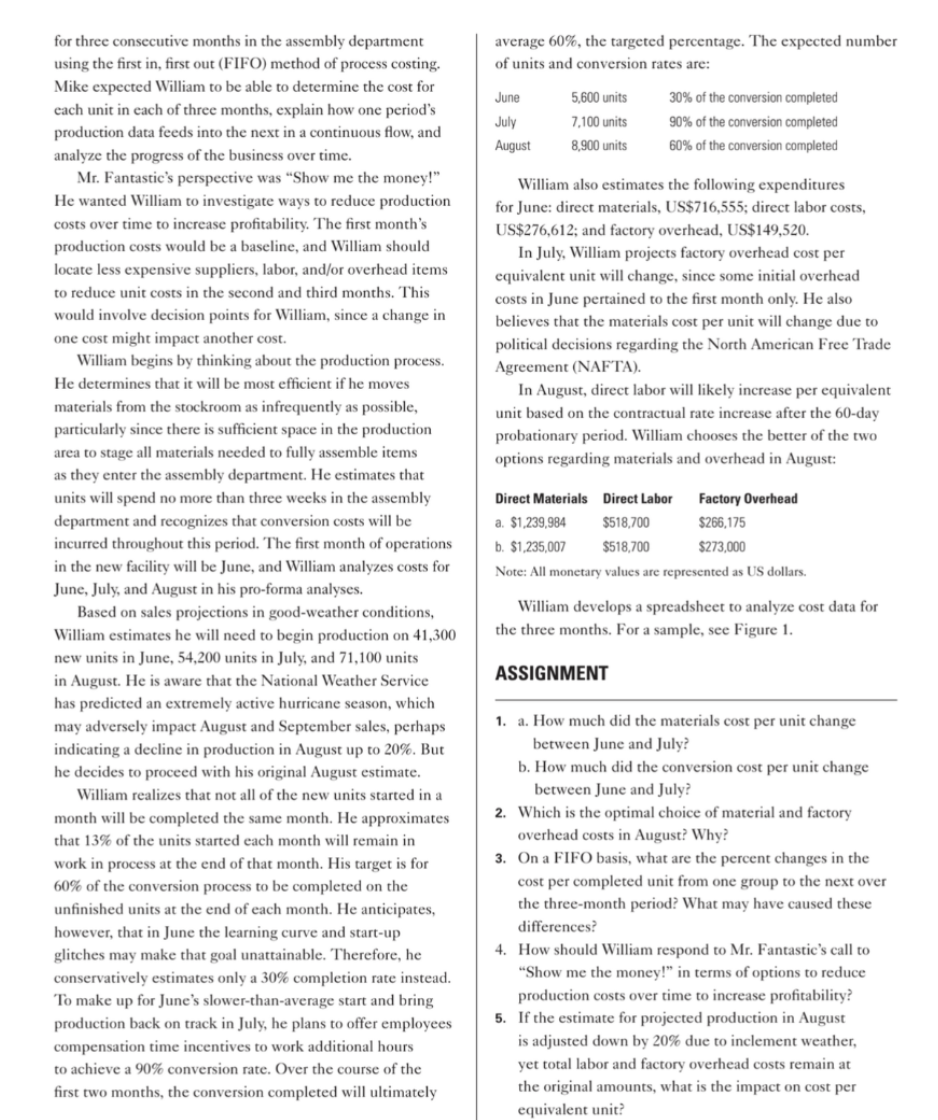
Spreadsheet:
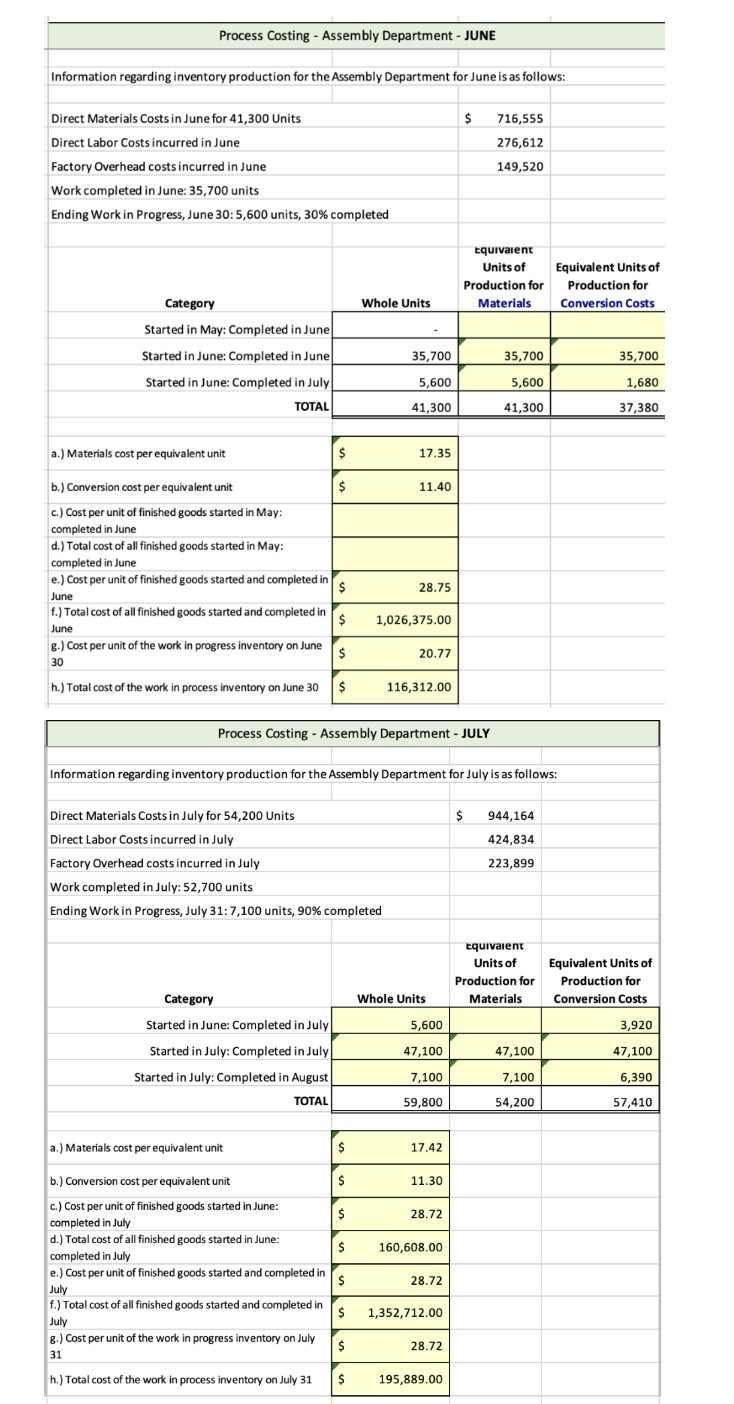
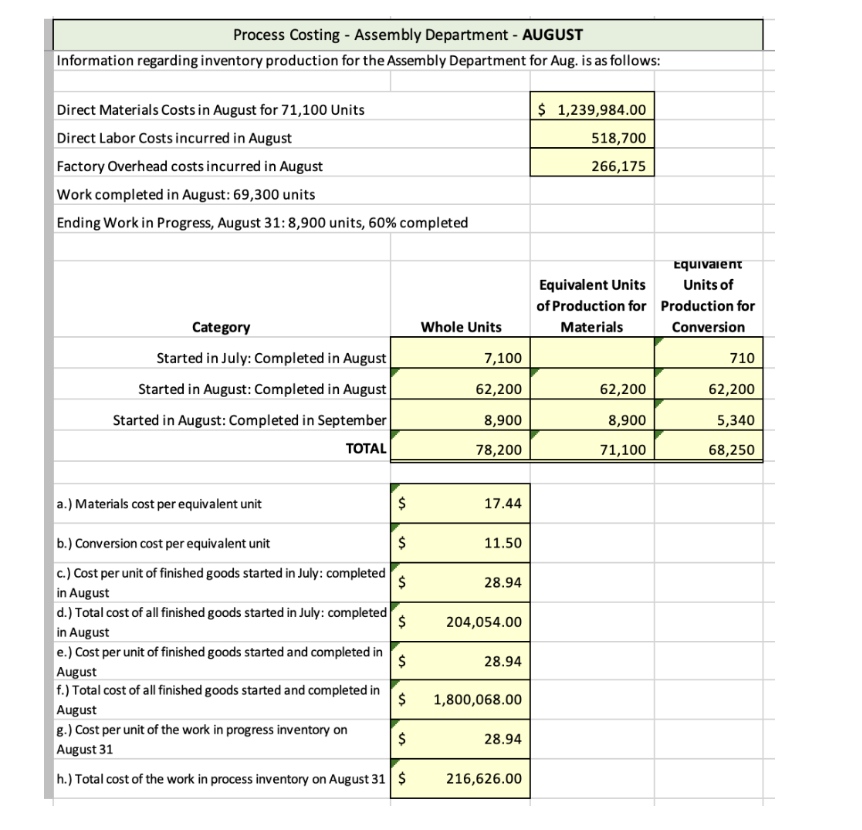 INTRODUCTION William Black is a creative, entrepreneurial individual who is c
INTRODUCTION William Black is a creative, entrepreneurial individual who is c INTRODUCTION William Black is a creative, entrepreneurial individual who is constantly working on unique and innovative solutions to everyday problems and annoyances. He has developed several interesting products and even garnered a limited number of online sales. But none of his inventions has taken off-until now. William recently developed an electronic device, BallBoy, which locates golf balls above ground, in ground, and under water. The built-in technology is powerful enough to search for and detect balls within a radius of the length of a soccer field. BallBoy is a holster that holds smart phones of various sizes and models. It is activated once the short cable on the device is plugged into the phone. BallBoy gives walking directions to golf balls visually on the phone screen as well as via audio instructions. BallBoy is inexpensive to produce but, due to its unique design, is difficult to replicate. William is particularly pleased with BallBoy, realizing it is his best idea yet. He has a patent pending to protect the functionality and use of his invention. William and his parents made and packaged 1,500 units of BallBoy in their garage and offered the product for sale online at US$99 per unit. William posted photos, videos, and information about BallBoy on his ecommerce website; the response was overwhelming. Within a week, orders exceeded 3,600 units. He shipped the available units and advised the remaining customers of the backorder. Customers posted rave reviews for quality, value, and functionality. William began hiring employees and expanded into his basement and backyard to scale the size of his operations. Orders continued to roll in at a pace he never imagined, and the team was barely able to keep up with the growing demand. William had neither the capacity nor the capital to further expand his production. He was denied loans at several banks due to his inexperience and unproven financial track record, and his family and friends did not have money to spare. The good news is he was contacted to appear on Spark Bank, a television show where entrepreneurs present new business ideas and products to five self-made billionaires who invest in small businesses they find appealing. On the show, the Spark Bank investors/judges were impressed with BallBoy and its potential to generate significant profit. Mike Peruvian and "Mr. Fantastic" showed genuine interest in William's business concept and offered a 10% equity stake in the business in exchange for funding to finance inventory and establish a production facility. Their one contingency was that after one year of operations, William must license the BallBoy technology to a major manufacturer, which they believe could use it for a different application. William was hesitant about sharing his trade secret, yet he agreed to the deal since he needed to money to proceed. Mike Peruvian wanted to be sure that William was well-versed in process costing as a cost allocation technique for identical items that are manufactured in a continuous sequence. He saw this as a test of William's ability to be a good product manager. He asked William to allocate anticipated production costs for both fully and partially completed units
Step by Step Solution
There are 3 Steps involved in it
Step: 1
Question 1 On a FIFO basis what are the percent changes in the cost per completed unit from one group to the next over the threemonth period What may have caused these differences To determine the per...
Get Instant Access to Expert-Tailored Solutions
See step-by-step solutions with expert insights and AI powered tools for academic success
Step: 2

Step: 3

Ace Your Homework with AI
Get the answers you need in no time with our AI-driven, step-by-step assistance
Get Started


